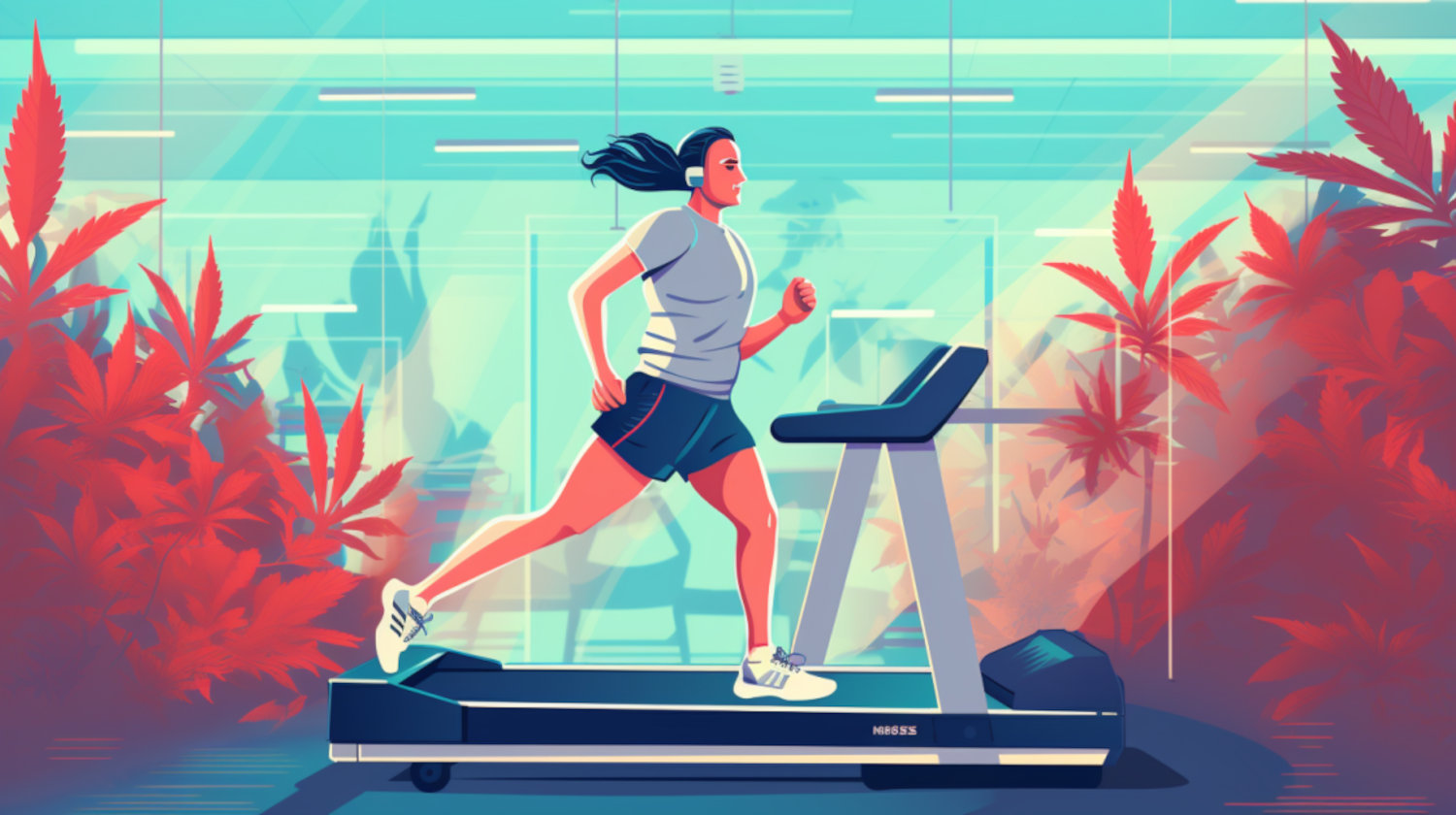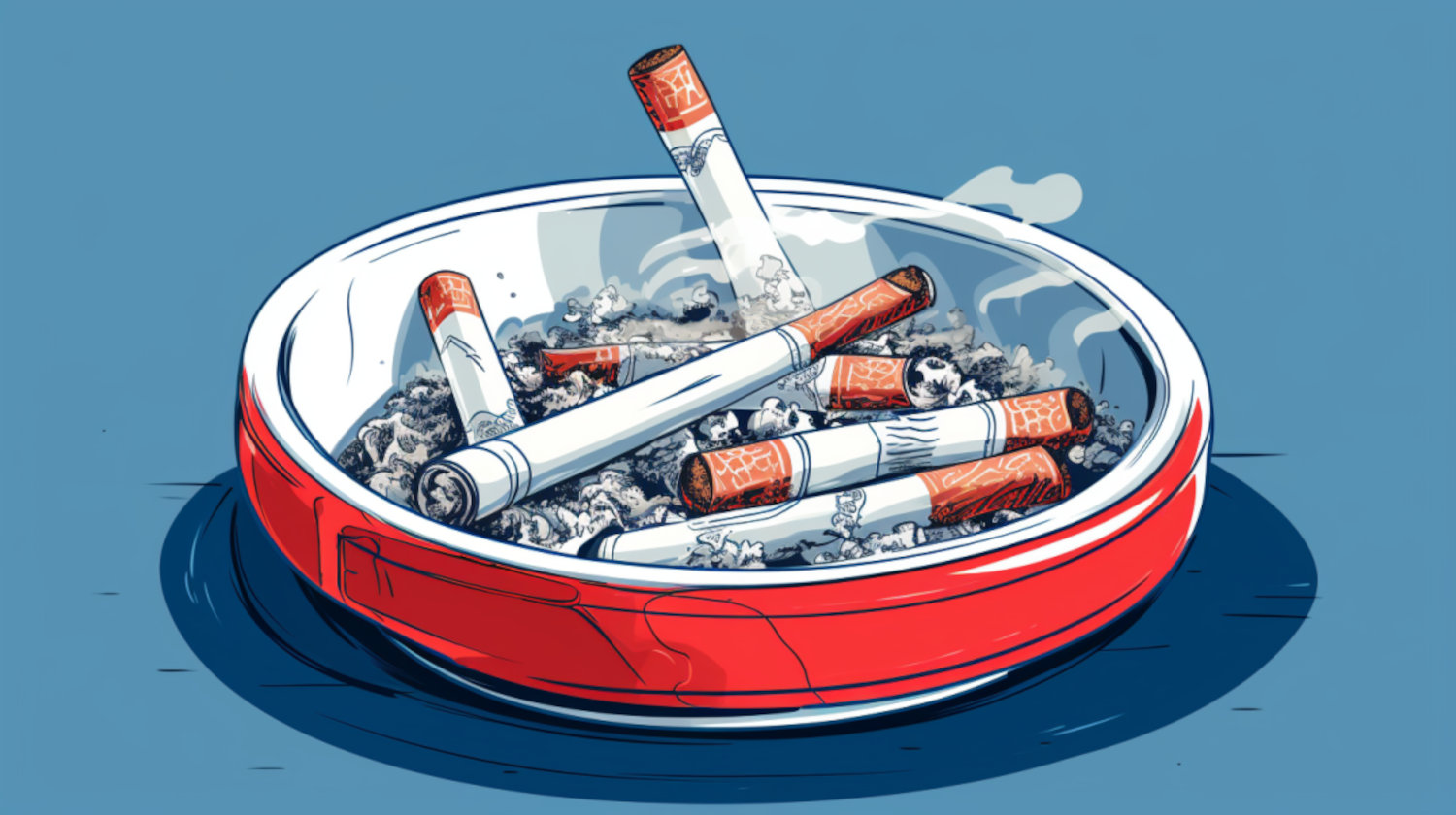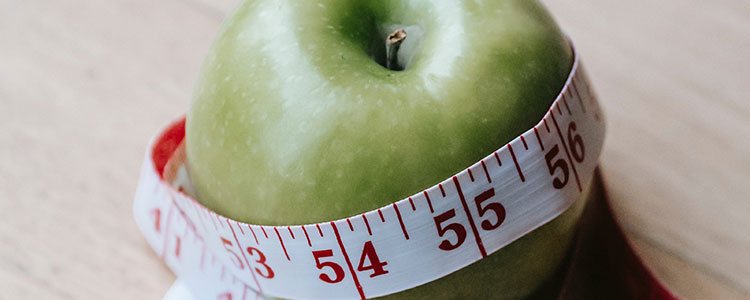In This Article
Adults who use cannabis are more physically active on the days they consume the drug, according to the results of a recent federally funded study. The research, which examined associations between cannabis use and other activities related to health, provides evidence that common stereotypes that the plant makes people lazy and unmotivated are untrue, according to a report from Marijuana Moment.
The study, which was published in the journal Addictive Behaviors last month, was conducted by a team of researchers across the United States who used data from 98 adults aged 18 and up over four weeks. The data tracked health-related behaviors, including moderate to vigorous physical activity (MVPA) and the consumption of controlled substances. Participants completed surveys via a smartphone app, answering questions such as “In the past 24 h, which of the following have you used?” with regard to substances, and “How many minutes of VIGOROUS leisure time physical activity did you get yesterday?” Examples of vigorous activity offered included running, aerobics, and heavy yard work.
The study only included participants who said that they had consumed cannabis during the previous 28 days. This allowed the researchers to investigate how past-month cannabis use on a particular day was associated with other health-related behaviors on the same day. The researchers note that the study is “among the first” to use real-time tracking data known as ecological momentary assessment (EMA), “to examine associations between cannabis use and same-day MVPA, alcohol consumption, and cigarettes smoked.”
While the researchers did not compare the data to non-cannabis users, they wrote that the study supported previous research that found cannabis consumers were more active than non-users.
“The observed positive between- and within-person associations between cannabis use and MVPA aligned with our hypothesis and prior cross-sectional observations that people who use cannabis (vs. non-users) tend to report more minutes of weekly [physical activity, or PA] and have higher accelerometer-measured light PA and MVPA,” the authors of the study wrote. “However observations conflict with findings that showed that current and past cannabis users have lower overall and recreational PA as compared with never users.”
The authors added that the difference could be related to the age of participants and that the results could “possibly be influenced by the assessment of exercise instead of overall PA,” a factor that limited direct comparisons between the responses.
Cannabis Use May Increase Feelings of Reward
The authors of the study did not attempt to explain why particular behaviors are associated with cannabis use, although they suggested that consuming cannabis may increase feelings of reward from different activities, such as exercising or using alcohol or tobacco.
“Mechanisms have been proposed regarding how cannabis use may influence PA participation,” the researchers wrote, “including how cannabis use may increase enjoyment and motivation to be physically active, enhance recovery from PA, and activate the endocannabinoid system and, subsequently, the dopaminergic system—increasing feelings of psychological reward associated with PA.”
The research also revealed that people who use cannabis were also more likely to drink more alcohol or smoke more cigarettes. The authors noted that those behaviors may also be associated with “mechanisms related to psychological reward.”
“Yet, there is nuance to these observations,” the authors wrote, noting that previous research that using alcohol and cannabis simultaneously “was associated with a greater number of hours feeling high.”
The researchers said their findings could help inform healthcare providers as they begin using more real-time tracking of patient behavior in their practice.
“Health professionals could use these data within multiple behavior change interventions that use just-in-time adaptive intervention strategies to deliver health behavior promotion- and substance use cessation-oriented content to individuals reporting higher cannabis use on a given day,” they wrote.
“Second, as governments legalize cannabis for medicinal and recreational purposes, this study offers a good starting point for further mechanistic investigations of how cannabis use may influence other health and substance use behaviors,” they added. “Better understanding these mechanisms is important when refining multiple behavior change intervention strategies for greatest scalability and maximum public health impact.”
Learn about the pros and cons of working out with cannabis. And sign up for NuggMD's Weekly Sesh newsletter for the latest cannabis news, consumer tips, and recommendations.
The information in this article and any included images or charts are for educational purposes only. This information is neither a substitute for, nor does it replace, professional legal advice or medical advice, diagnosis, or treatment. If you have any concerns or questions about laws, regulations, or your health, you should always consult with an attorney, physician or other licensed professional.




